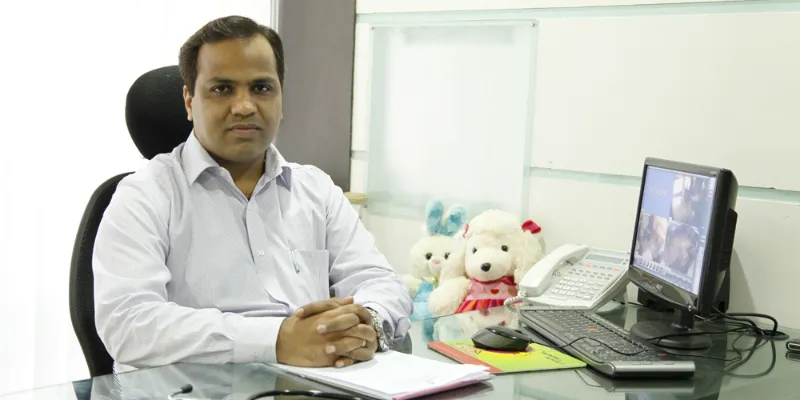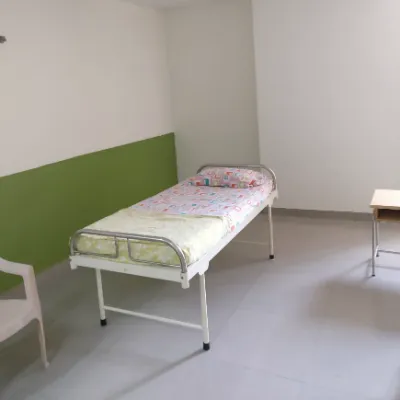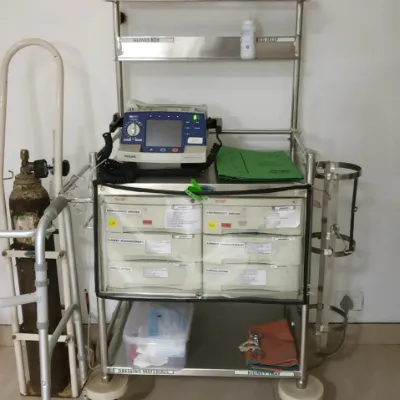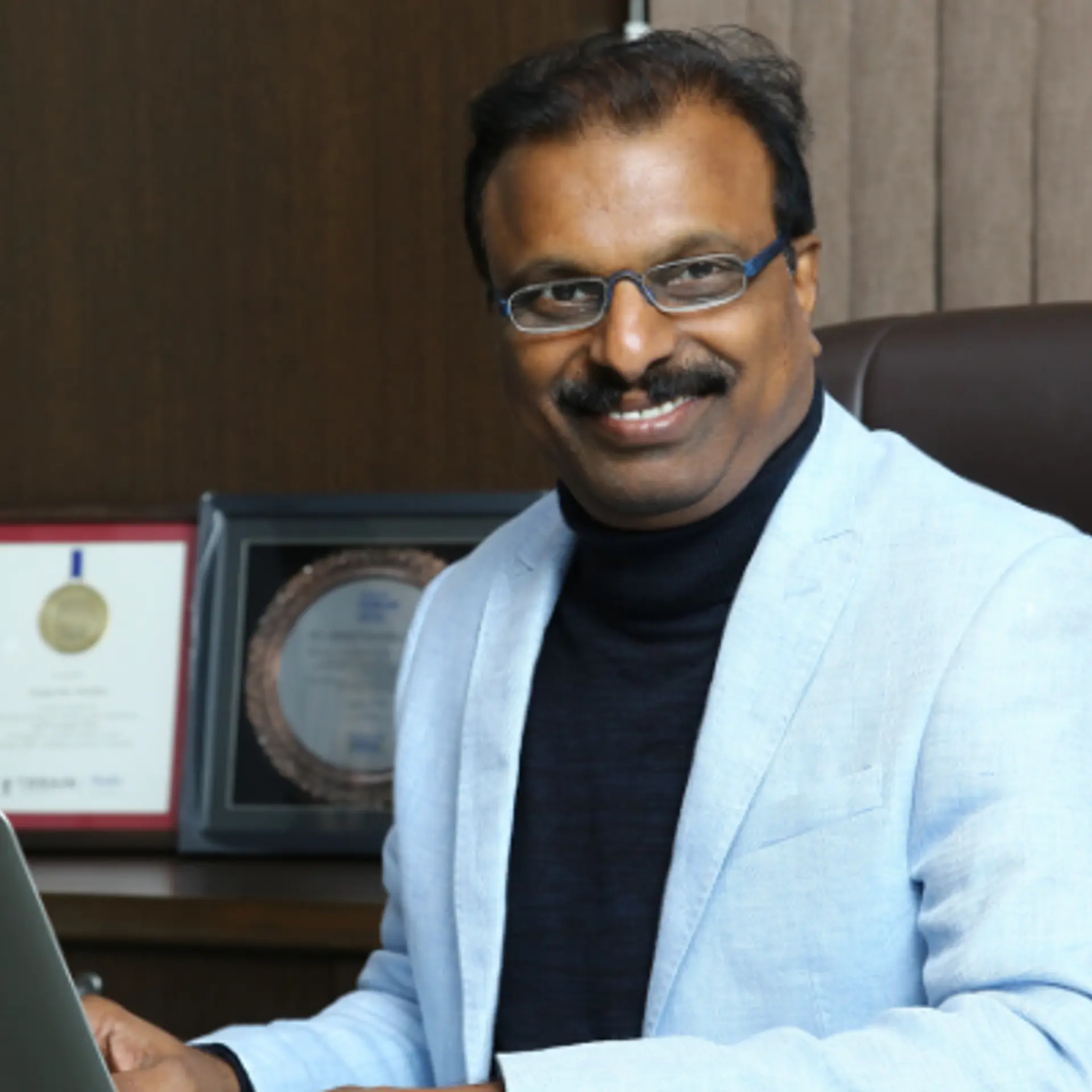Mumbai-based Docterz at School provide full emergency healthcare setup for students for just Rs 2 lakh
Docterz at School arms educational institutions with emergency teams comprising Paediatric Advanced Life Support (PALS) trained nurses -some of whom stay on campus.
India achieved the World Health Organisation’s recommended doctor-to-population ratio of 1:1000 in 2018, according to a report in the Journal of Family Medicine and Primary Care. It also says that with over 479 medical schools, India has an average annual intake of over 67,000 MBBS students at medical colleges regulated by the Medical Council of India.
However, these numbers do not directly translate to high quality, paediatric care at schools. Children spend most of their daytime in school and are highly prone to playground or sports injuries.
A lot of times, school infirmaries are not well-equipped to handle emergencies and in rural areas, schools may not have any healthcare facilities.
Realising that there was no holistic program to ensure that all aspects of a child’s health are taken care of at school, Mumbai-based paediatrician Atish Laddad (39) came up with a solution.
He decided to address the problem by starting a platform of skilled paediatricians which would set up a critical care unit in schools. He leveraged expertise from his existing healthcare platform ‘The Pediatric Network’ and its parent platform ‘Docterz’.
Docterz is Atish's clinic management and patient connect software for paediatricians to streamline their practice.
And In 2015, he started ‘Docterz at School’ -an initiative through which Atish could install state-of-the-art casualty rooms in schools to efficiently handle a broad range of medical situations.

Atish Laddad, Founder and Director, Docterz
“These medical situations range from unexplained aches and pains to injuries and life-threatening conditions such as cardiac arrests and burns,” Atish says.
Today, 28 schools in Mumbai have adopted this Docterz at school casualty rooms. Some of these are Goldcrest High School, Karthika High School, Friends Academy, and St. Mary’s School.
Atish adds, "Since medical rooms and school health check ups have been made mandatory by the government, the idea is well-welcomed by schools. All boards have made it compulsory."
How it works
Docterz at School arms educational institutions with emergency teams comprising Paediatric Advanced Life Support (PALS) trained nurses. Atish says that these nurses are specially-trained to handle cases such as diabetes, cardiovascular emergencies, and more.
Some of the nurses are hired for stay on campus to ensure round-the-clock availability.
To oversee emergency responsiveness, a paediatrician pays a monthly visit to the participating schools.
Atish adds that Docterz at School has also arranged for a backend team of paediatricians who, in cases of extreme emergency, go to the campus to attend to the child.
Further, training is also done for school staff in case of emergencies. They are given a two hour session on how to accurately measure the weight and height of children, examine for nutritional deficiencies, and look out for dental and visual problems.
"Further, based on a questionnaire, they are trained to identify children with long standing physical and mental health issues,” Atish says.
These staff are also trained to also ensure a check on the expiry of medicines. A 24/7 helpline number is also given to schools in case of emergencies.

A Docterz at School medical facility
Docterz at School also focuses on the mental health of children. Atish believes that mental health issues lead to poor performance at school, increases in dropout rates, upsurgence in school violence, social stigma, and in worse cases, suicides and homicides.
“Comprehending the significance of providing a secure lifestyle to student, and focussing on mental health as well, this program arms each school with efficient child assessment and diagnostic measurements to take care of the student’s innate medical needs,” Atish says.
Business setup
The child care market in India is expected to be worth $27.63 billion by 2020, according to the report ‘Maternity and Child Care (MCC) Hospitals Market in India 2015-2020’, released by Novonous. And by focussing on healthcare at school, Atish has found his own way of tapping into this market.
When he started Docterz at School, it was free. As a pilot, the platform set up 10 medical rooms and did health checkups for 40,000 students across Mumbai for prices as low as $1 (approx Rs 70) per student, Atish says.
Now, the business charges schools for setting up emergency services within their premises. Schools pay only for the kinds of emergency services they opt for.
A complete, one-time healthcare setup from Docterz at School costs between Rs 2 lakh and Rs 2.5 lakh.
Docterz at School charges another Rs 2 lakh to Rs 2.5 lakh per annum for end-to-end-management, such as paeditrician backup services, supervision, annual health check-ups, awareness programmes, etc.
Thus, a school opting for the full setup plus complete management by Docterz will have to pay around Rs 4 lakh to Rs 4.5 lakh in the first year, and between Rs 2 lakh and Rs 2.5 lakh in the subsequent years.
This revenue model for the business is something Atish is looking to popularise. “Now we are transforming into a full-fledged, scalable model, soon to be implemented in schools all across the country,” he adds.
His confidence to scale up is backed by the way Docterz handles data through its custom application.
When the staff at schools record data from children, it is entered into the Docterz app, which works offline as well. Atish says that it is easy to use and supports multiple languages. Based on the data entered, growth charts are created to generate medical and lifestyle recommendations for the children.
“This data can be printed in the form of smart reports and handed over to parents to help them understand their child’s health,” Atish says.
Further, the data is analysed by Docterz’s paediatricians and based on their inputs, they go for targeted intervention to schools. “The statistics generated, based on Machine Learning algorithms, help the school and government in taking the right policy decisions regarding their students’ health,” he says.
Docterz, the parent platform, is currently bootstrapped and may later seek funding from within the doctor community. Atish says Docterz has invested close to Rs 5 crore in the project, and is debt-free.

Medical equipment at a Docterz at School facility
The road ahead
Atish recalls struggling with starting up, coding, and marketing. But he always knew what we wanted from technology. “To be successful, every idea needed the right product, and the right marketing and after-sales service. It took us time to understand how to implement ideas,” he says.
But today, he believes he has put together a team capable of scaling up. Docterz at School’s 25-member team of coders and developers, UI/UX strategies, online and offline sales teams, and its after-sales are working in sync, he says.
Docterz at School is now future-ready and is looking to scale. It currently records a revenue of close to Rs 1 crore, but Atish estimates it can go even bigger. His aim is to benefit one lakh students this year as well as for 50 schools to adopt the casualty room.
Competitors include search engine and appointment booking platform Practo, prescription software Addodocs, and teleconsultation platform Doc Insta.
But the USP is that Docterz is a tech-enabler and doesn’t believe in building disruptive technologies.
Atish says, “We want to support the existing workflow of health industry and go a mile further in building the failing trust between doctors and their patients.”
Starting as a paediatrician-centric platform, Docterz at School has begun its journey towards becoming a global health tech platform.
Atish wants to bring more creative thinking into healthcare technology and steer health tech towards utility. In the near future, Atish is also looking to build a mother-child health tech platform named ‘Circle Of Life’ to enhance the experience parents and to-be-parents get in and outside the hospital.
ALSO READ:
Like Narayana Health, SMT makes heart surgery affordable with cardiac stents







